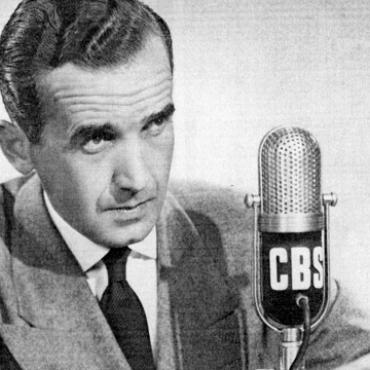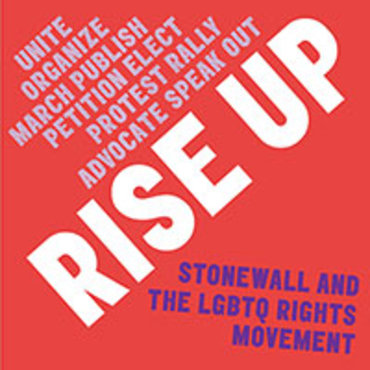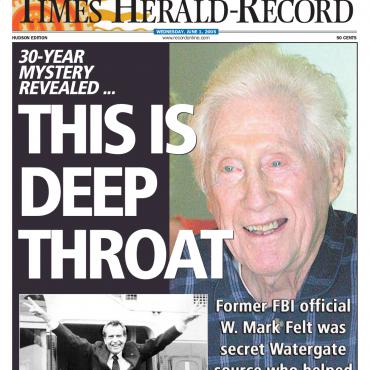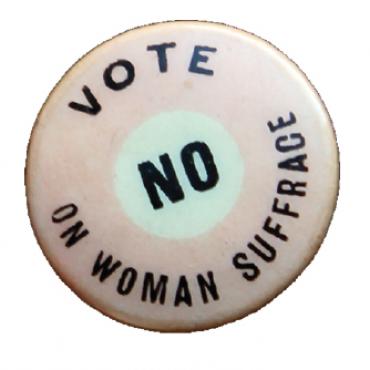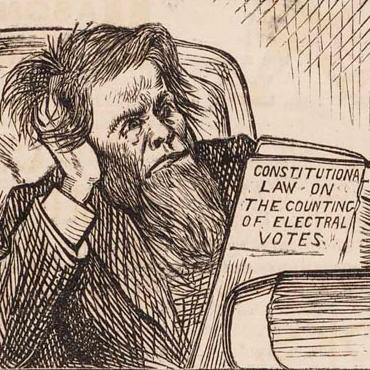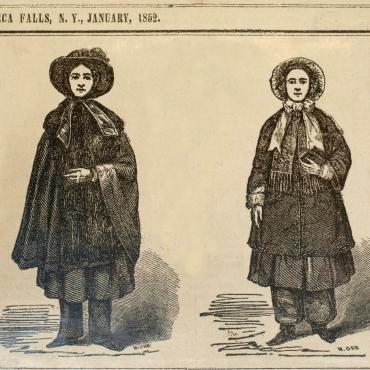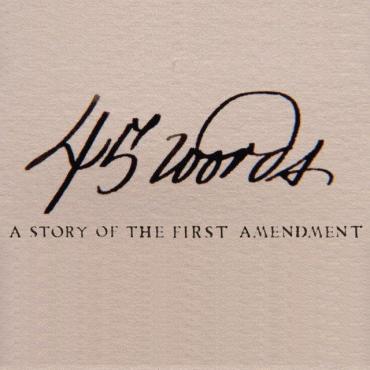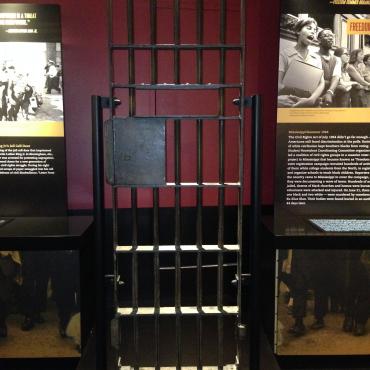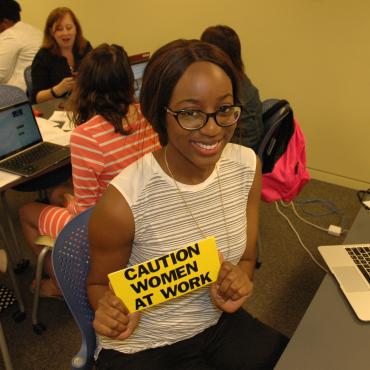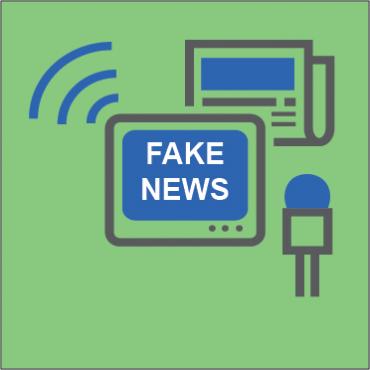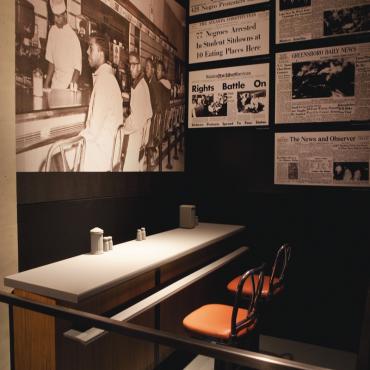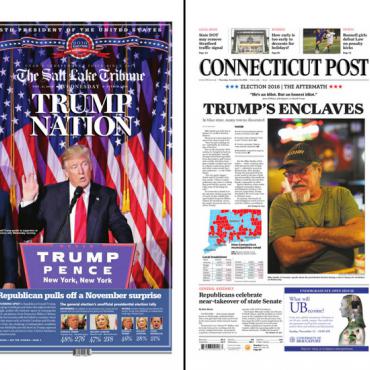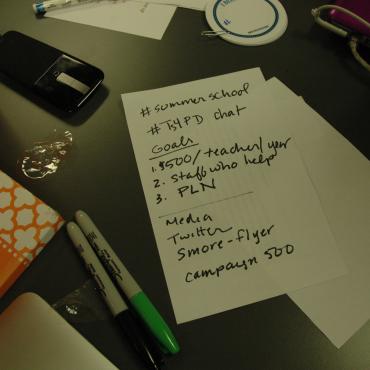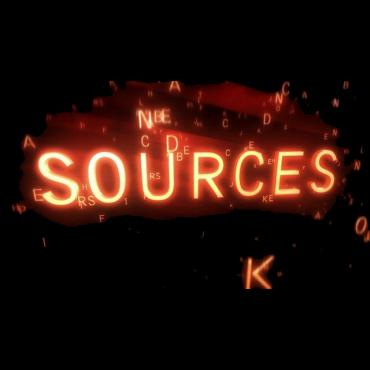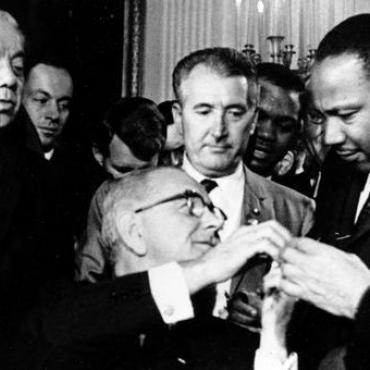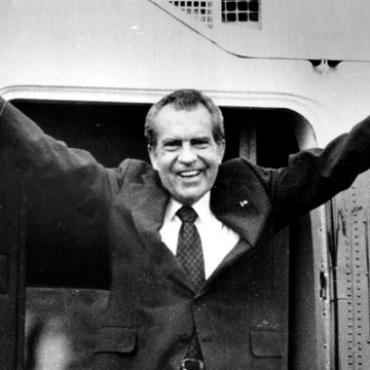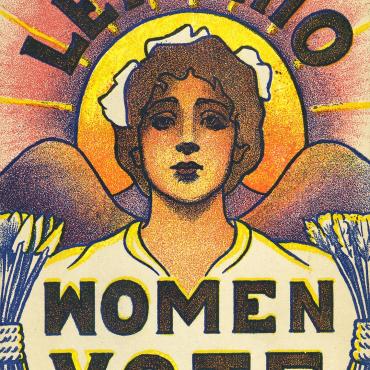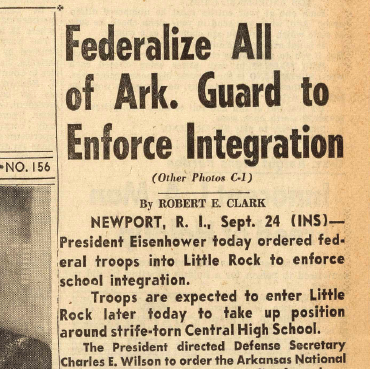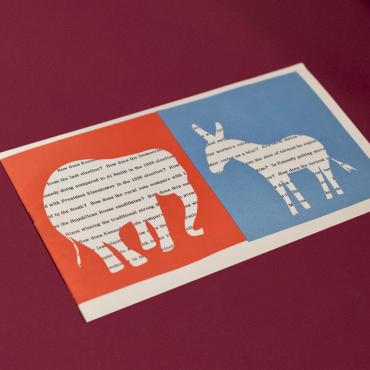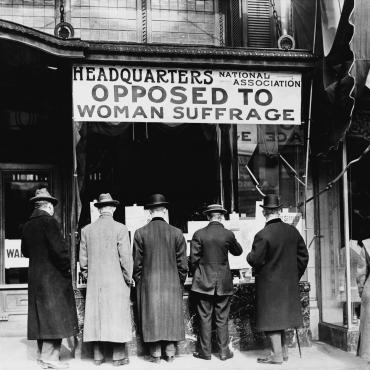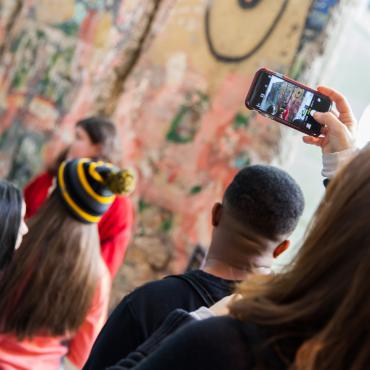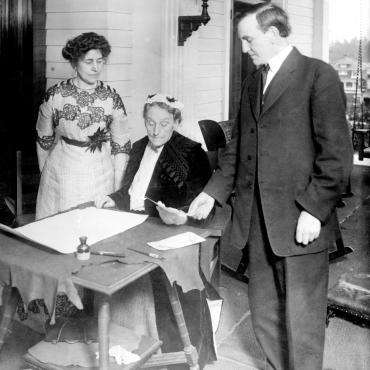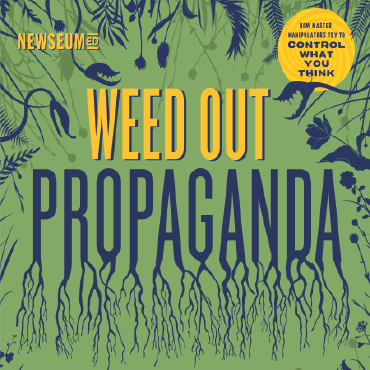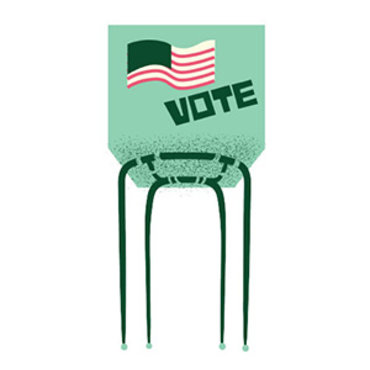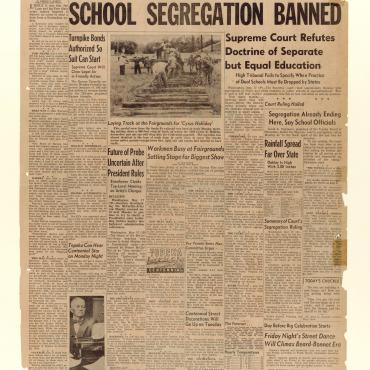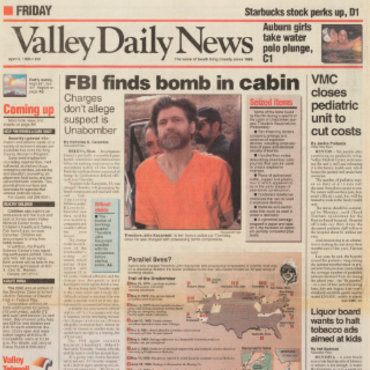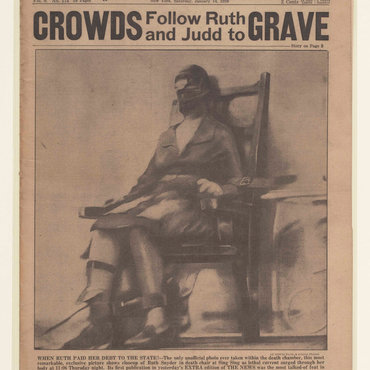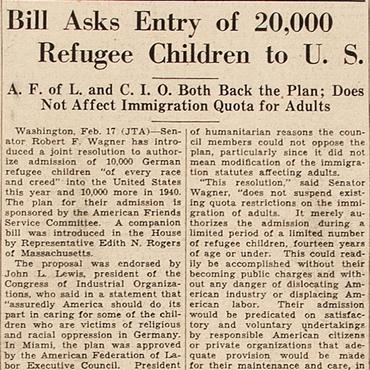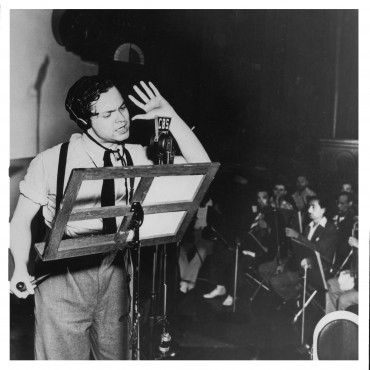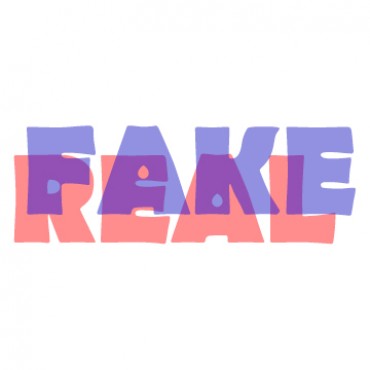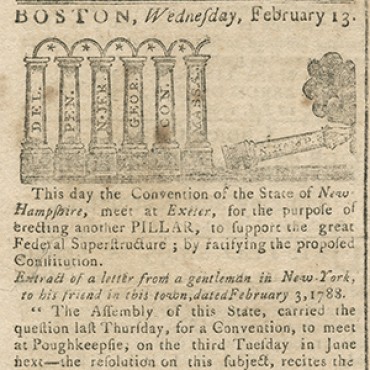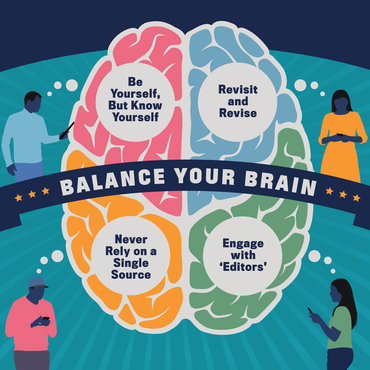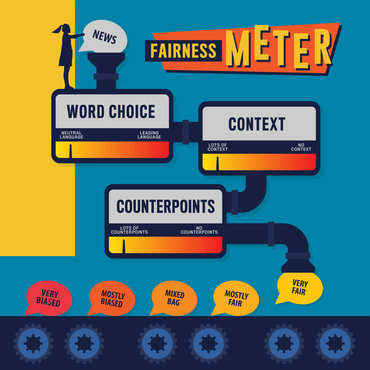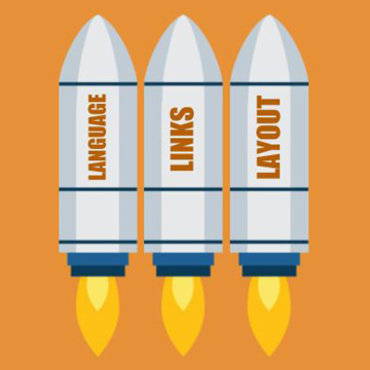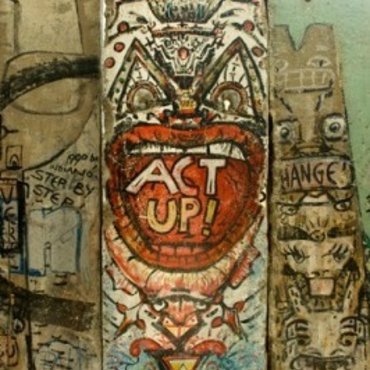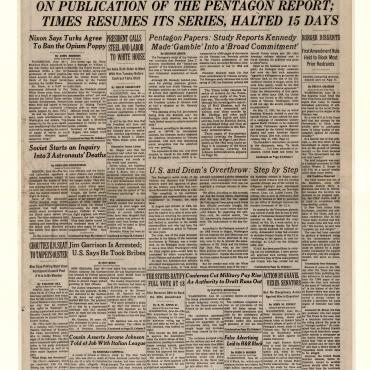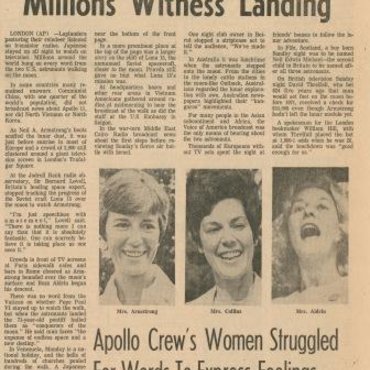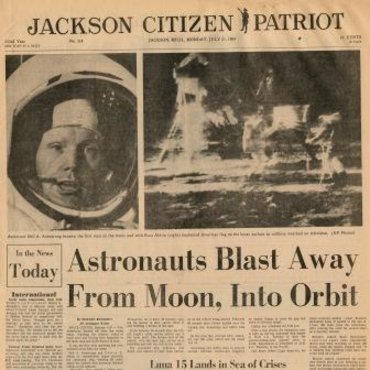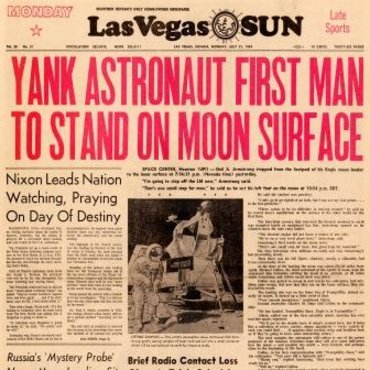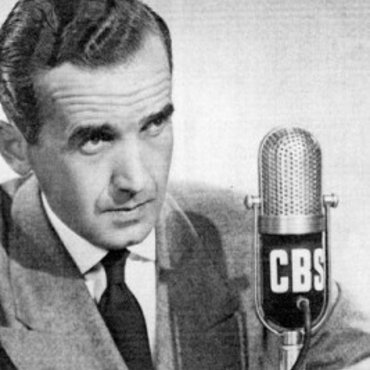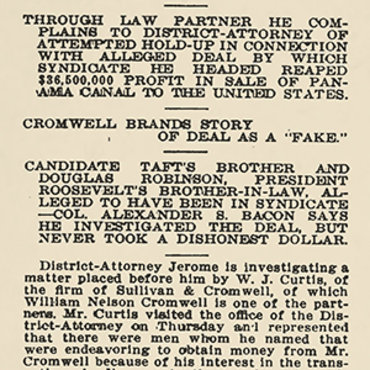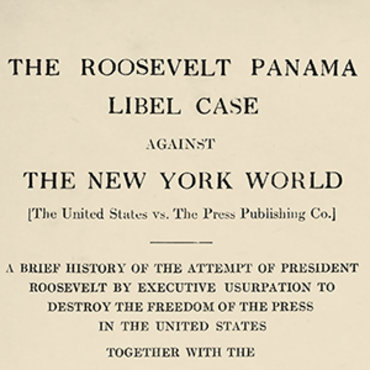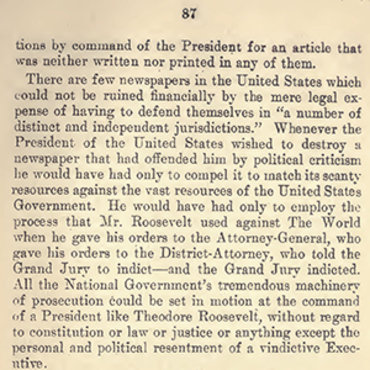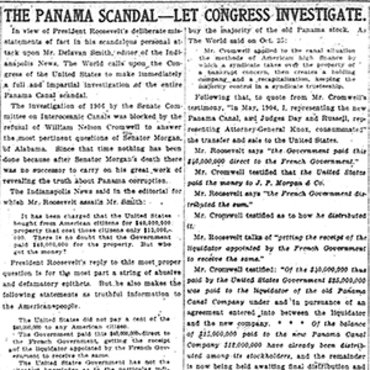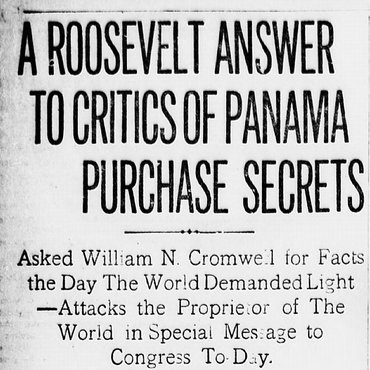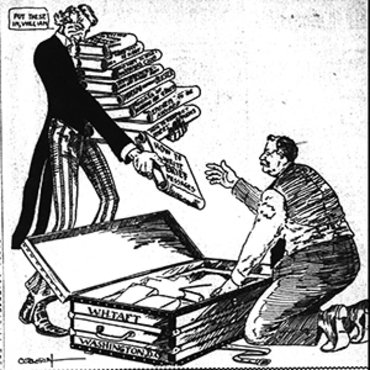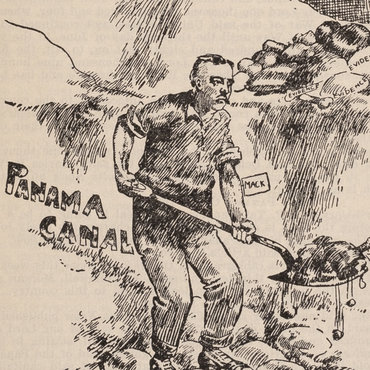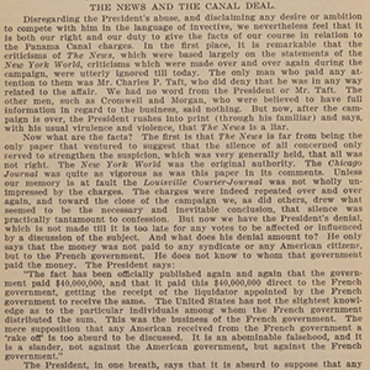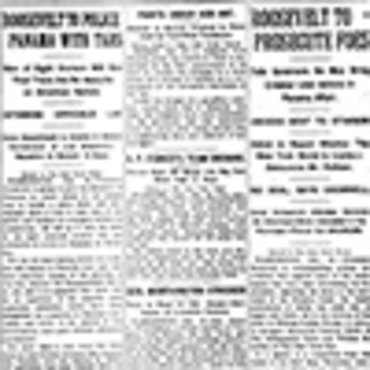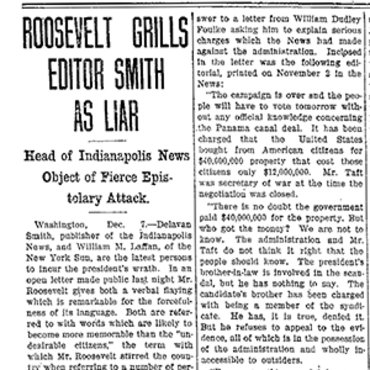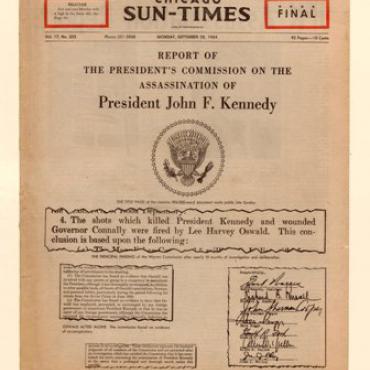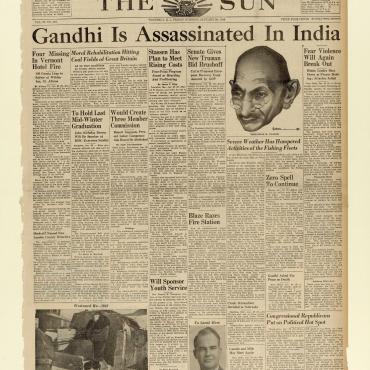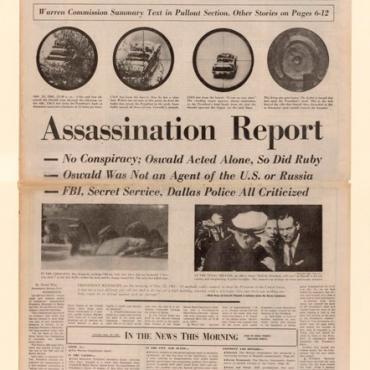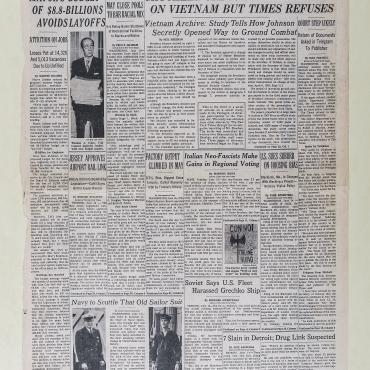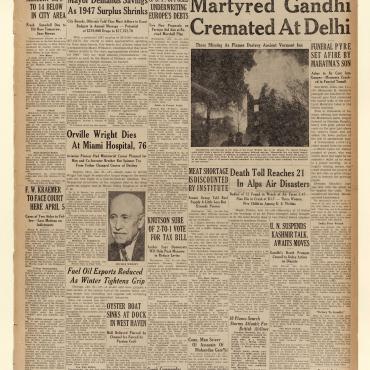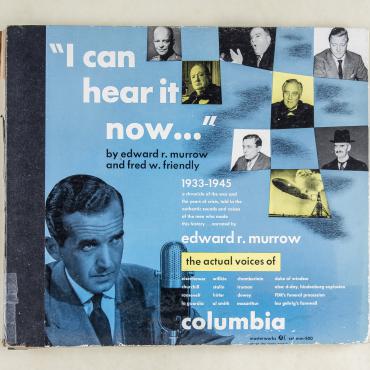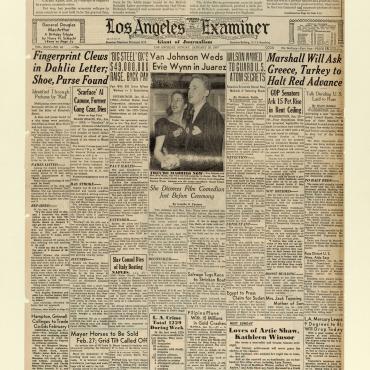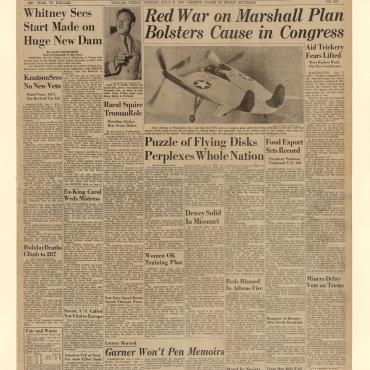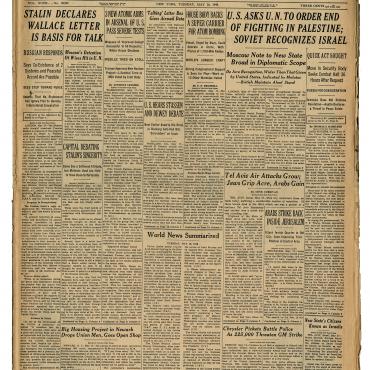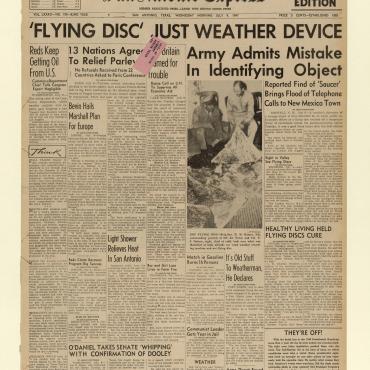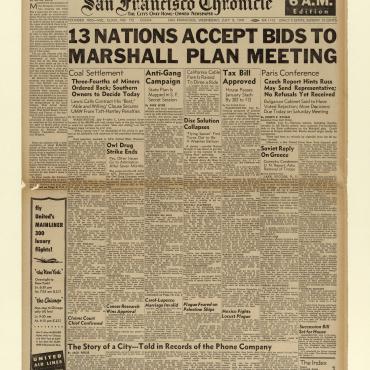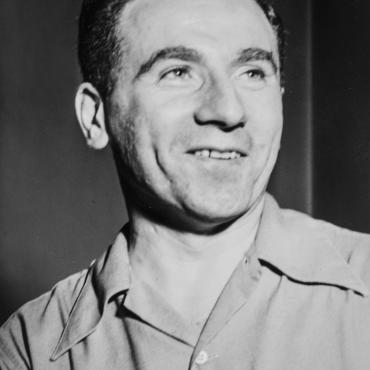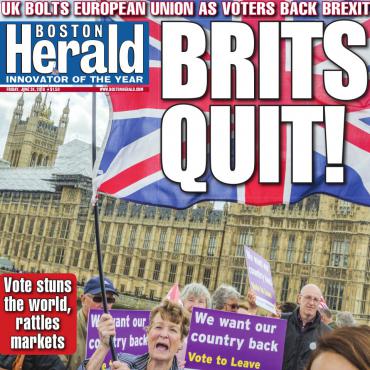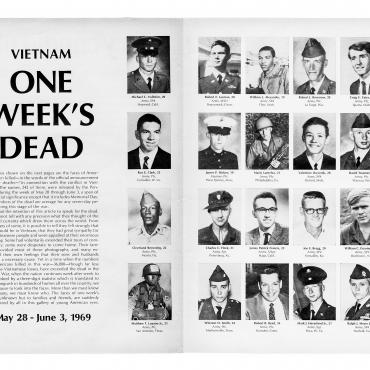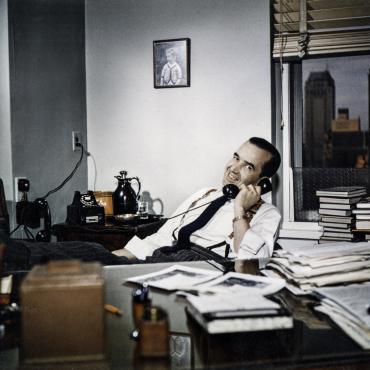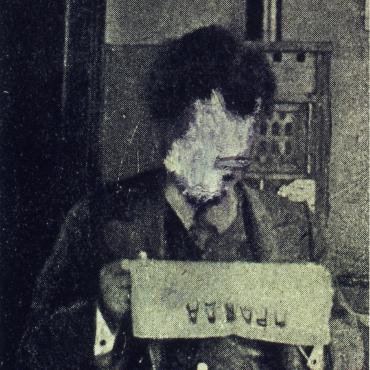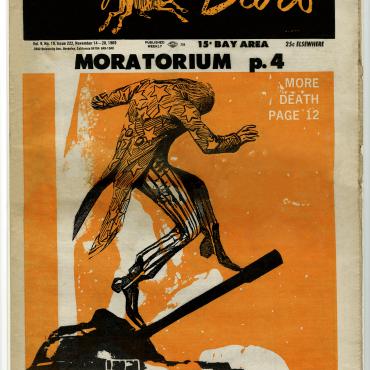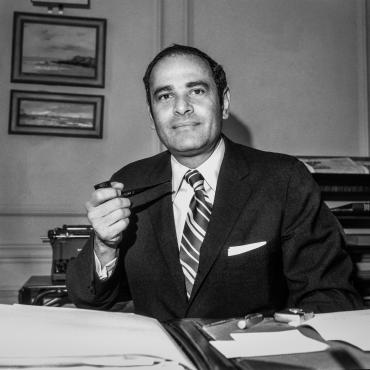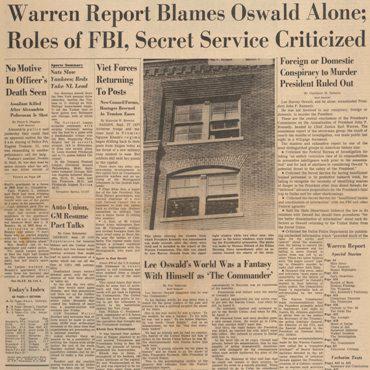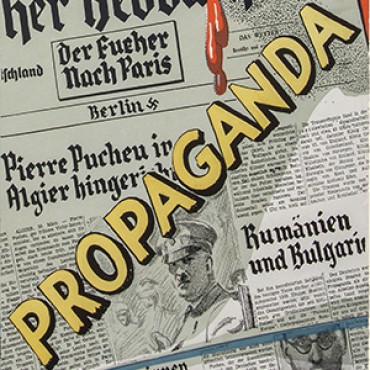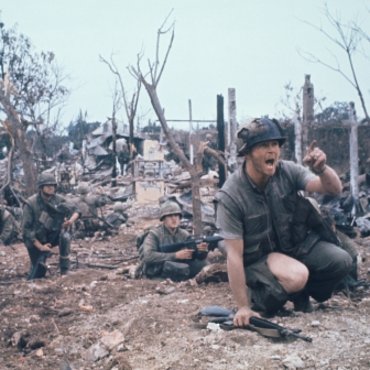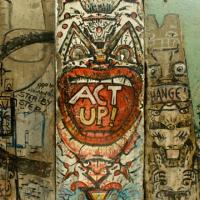
'The Berlin Wall and the Press' Video Lesson
This video shows first-hand footage of life on both sides of the Berlin Wall, including daring escapes and protests calling for freedom in East Germany.
Get even more great free content!
This content contains copyrighted material that requires a free NewseumED account.
Registration is fast, easy, and comes with 100% free access to our vast collection of videos, artifacts, interactive content, and more.
NewseumED is provided as a free educational resource and contains copyrighted material. Registration is required for full access. Signing up is simple and free.
With a free NewseumED account, you can:
- Watch timely and informative videos
- Access expertly crafted lesson plans
- Download an array of classroom resources
- and much more!
- Cold War
- Journalism
- Politics
- World History
- 9-12
- College/University
All news coverage and interviews are primary sources. Some of these sources include graphic images.
- Warm-up questions (see teacher key in lesson plan download for possible answers)
- What do you know about the Cold War and the Berlin Wall?
- How do we get information about what our government is doing?
- What would it be like to live in a society where you were not allowed to leave your city or read/watch/listen to the news that interests you?
- Hand out copies of the worksheet. Students should read the questions before you start the video and take notes during it.
- Watch the video.
- The after-you-watch comprehensive questions can be done in class or for homework.
- “The Berlin Wall and the Press” Video Lesson worksheet (download), one per student
- Internet connection to watch “The Berlin Wall and the Press” video
- “Berlin Wall” handout (download, optional)
Discuss or assign one or more of these questions as short essays for homework:
- Walls can stop people but not radio and television transmissions. What role did radio and television news play in the fall of the Berlin Wall? What could radio and television do that print news could not?
- Today, where do we see countries building walls? These could be physical barriers or virtual barriers (to information, ideas, etc.). What are the purposes of these walls? How do they compare and contrast to the Berlin Wall?
- How did the wall affect the lives of East Berliners? How did the wall affect the lives of West Berliners? Compare and contrast life on both sides of the wall.
- What effects did the fall of the Berlin Wall have on people far away in the United States? What were the immediate consequences? What were the long-term consequences?
- Reuven Frank described the arrangement NBC made for documenting a tunnel dig and escape from East Berlin: “We will supply material. They have to give us a bill, and we will pay it, and in return we have the right to film. Period.” Do you find this arrangement acceptable? What are the pros and cons of paying for access to a news story?
- What is propaganda? How was it used by authorities in both East and West Berlin? What does propaganda look like today? Is using propaganda ever acceptable?
- How were people living in East Berlin depicted in the media? How were people who escaped from East Berlin depicted? Do you think the depiction of escapees encouraged other East Berliners to try to escape? If so, should the news media be wary of encouraging people to attempt something very dangerous?
- Why did RIAS self-censor its coverage of the 1953 worker demonstrations? Do you think self-censorship occurs in the news media today? When might the media want to hold back information?
These activities will help you learn more about the Berlin Wall, the role of the press and similar struggles throughout our world today.
- In the video you saw people jumping from windows, tunneling and swimming to escape East Berlin. Research other ways East Germans tried to escape to the West, such as hiding under the backseat of a car or building a hot air balloon; focus on one person’s story and write a report that tells it in detail.
- The Berlin Wall fell in November 1989. Earlier that same year, violent protests raged in China’s Tiananmen Square. Answer the reporter’s questions for the events at Tiananmen Square: who, what, where, when, why and how? Then write a short essay describing the role of the press in these protests. How was their role similar to reporters covering the events in East Berlin? How was it different?
- In recent history, other countries have experienced uprisings in which news spread quickly (and, in some cases, sporadically), when authorities might have preferred otherwise. Research events in either Tehran, Iran (June 2009); Tunis, Tunisia (January 2011) or Cairo, Egypt (January 2011). Write a short essay that answers these questions: How did the protests begin? What did protesters want? What challenges did professional journalists face from authorities while trying to report on events? What criticisms were leveled at journalists or specific news organizations? How did non-professionals in these places spread news about events? What challenges did they face? Give specific details and highlight particular cases to illustrate your answers.
- Imagine you are a resident of East Berlin. Write five journal entries that span the years 1960-1990 describing what your life is like. Think about the key events of this video as you write the journal entries. Describe your reaction to these events and how they likely affected your life.
- Create a timeline of the rise and fall of the Berlin Wall and what happened after it came down. Your timeline should cover 1961 (the year the wall went up) through 1999 (the year the government of reunified Germany officially returned to Berlin).
- How do you bring a city and country that have been divided for decades back together? Research the reunification of Germany and prepare a presentation for your class. Your presentation should cover these points: What was Germany like immediately after the fall of the Berlin Wall? What were the key elements of the plan to reunite Germany? Was the plan a success? Why or why not?
- The West Berlin side of the Berlin Wall became a popular canvas for graffiti artists. (You can see examples of the graffiti here: http://www.berlinwallart.com/) The East Berlin side, on the other hand, remained blank. Using cardboard or foam core board, erect a wall in your class. On one side, you are free to express yourself using any colors you desire. On the other side, you can only use black and white, and your teacher has the power to censor (black out) anything he or she does not like. Take 30 minutes to decorate both sides of your wall as a class. Display your finished wall with a paragraph that explains how it was created and how it relates to the Berlin Wall.
- Watch the movie “Good Bye, Lenin!” (rated R). Make a list of the methods Alex uses to convince his mother she is still living in East Germany. Write two or three paragraphs comparing and contrasting the versions of East and West German lives depicted in this movie to the depictions in the Newseum video.
- Create a map of Germany post-World War II, showing divisions of East and West Germany and who controlled each area. Create a second map that shows how Berlin was divided. Indicate where the Berlin Wall stood. Be sure to include a scale.
-
Common Core State Standards: CCSS.ELA-LITERACY.CCRA.SL.2
Integrate and evaluate information presented in diverse media and formats, including visually, quantitatively, and orally.
-
National Center for History in the Schools: NCHS.Historical Thinking.3
A. Compare and contrast differing sets of ideas. B. Consider multiple perspectives. C. Analyze cause-and-effect relationships and multiple causation, including the importance of the individual, the influence of ideas. D. Draw comparisons across eras and regions in order to define enduring issues. E. Distinguish between unsupported expressions of opinion and informed hypotheses grounded in historical evidence. F. Compare competing historical narratives. G. Challenge arguments of historical inevitability. H. Hold interpretations of history as tentative. I. Evaluate major debates among historians. J. Hypothesize the influence of the past. -
National Center for History in the Schools: NCHS.US History.Era 9
Standard 1: The economic boom and social transformation of postwar United States Standard 2: How the Cold War and conflicts in Korea and Vietnam influenced domestic and international politics Standard 3: Domestic policies after World War II Standard 4: The struggle for racial and gender equality and for the extension of civil liberties -
National Center for History in the Schools: NCHS.US History.Era 10
Standard 1: Recent developments in foreign policy and domestic politics Standard 2: Economic, social, and cultural developments in contemporary United States
-
Center for Civic Education: CCE.V
A. What is citizenship? B. What are the rights of citizens? C. What are the responsibilities of citizens? D. What civic dispositions or traits of private and public character are important to the preservation and improvement of American constitutional democracy? E. How can citizens take part in civic life?
